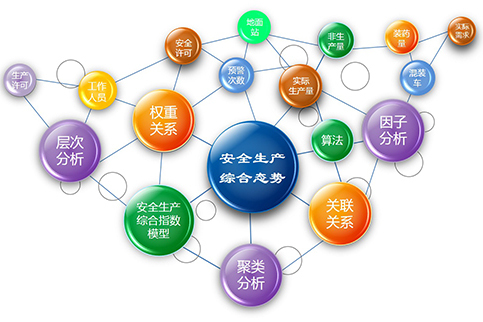基本介紹
中文摘要,外文摘要,
中文摘要
本論文以電子供應鏈環境為背景,供應商關係管理(SRM)為研究對象,數據挖掘為工具,對供應商關係管理的三個核心問題,供應商分類,評價和選擇的決策方法進行了深入的研究,並且提出了系統化的供應商關係管理的數據挖掘解決方案。本論文研究的創新點包括: (1)基於子空間聚類算法的供應商動態分類方法。以供應商行為屬性的數據分析為基礎,提出基於變數加權的k-均值子空間聚類算法(FW-Kmeans)建立供應商動態分類模型。該模型在保留k-均值算法處理大規模供應商行為數據能力的同時,克服了子空間聚類算法普遍存在的稀疏矩陣處理的缺陷。對比傳統的靜態分類,新方法通過對決策結果的對比和調整,能夠得到動態、合理的供應商分類結果。 (2)基於粗糙集的供應商績效評價體系。該體系能夠適應電子供應鏈環境,採用平衡記分卡思想建立評價體系結構,以關鍵績效指標確定評價標準。同時根據粗糙集無需任何先驗知識,依據知識的粒度性處理不完備信息,能夠在保留關鍵信息的前提下得到知識的最小表達等優點,提出基於粗糙集的綜合評價方法,解決了評價體系中客觀約簡決策屬性並設定權重等關鍵問題。比較傳統的運籌學方法,新評價體系的層次清晰,易於理解和操作,能夠系統、有效的對供應商績效進行評價。 (3)基於遺傳DEA規劃的供應商選擇模型。該模型綜合了數據包絡分析(DEA)以相對效率的量化衡量為基礎,避免確定各指標在優先意義下的權數,對輸入輸出指標有較大的包容性等特點;以及遺傳算法具有的學習性、進化性和多向性全局搜尋的特徵,高效、客觀的解決多屬性輸入輸出,多目標規劃的供應商選擇問題。比較傳統的多目標規劃方法,新模型提高了決策的可擴展性,適應性和效率。 (4)以電子供應鏈環境為背景的供應商關係管理的數據挖掘解決方案。建立了供應商關係管理智慧型決策支持系統(IDSS)的總體結構,並分別從系統開發的總體視圖,數據建模與分析,過程沒計和界面設計幾個方面進行了系統分析與設計。比較傳統的採購信息系統,新方案和IDSS具有系統化,網路化和智慧型化特徵,有助於企業在電子供應鏈環境中獲得優勢。
外文摘要
This dissertation focuses on studying the supplier relationship management solving methods of the key problems, which are supplier categorization, supplier evaluation and supplier selection, based on data mining. The e-supply chain environment is the research background; the supplier relationship management is the research object; the data mining is the research instrument in the dissertation. Also, the systematic data mining solution of supplier relationship management is proposed. The main creative contributions of this dissertation are as follows: (1) Dynamic supplier categorization method based on FW-Kmeans. It studies on building the dynamic supplier categorization model with FW-Kmeans algorithm to analyses supplier behavior data. This model could retain the ability of processing large-scale data of k-means. On the other hand, it overcomes the shortcoming on processing spare data of the subspace clustering algorithms. By means of comparing and adjusting the decision results, the new method could obtain the dynamic and reasonable solution, so that it is better than the traditional static categorization methods. (2) Supplier performance evaluation system based on rough set theory. It studies on creating the supplier evaluation system structure based on balanced scorecard, and the indicators are selected with KPI to adapt to the e-supply chain environment. The integrated assessing method, which is based on rough set to solve the important problems of the system, is proposed. Rough set has several advantages on dispensing with transcendent knowledge, processing imperfect information according as the granularity of knowledge, getting the minimal expression of knowledge and preserving the key information, objectively reducing attributes and evaluating weights. Compared to the traditional operation research methods, the new evaluation system has legible hierarchy, and easy to understand and implement, so that could evaluate suppliers systematically and effectively. (3) The supplier selection model based on genetic DEA programming. This model combines the advantages of both data envelopment analyses (DEA) and genetic algorithm. DEA is based on relative efficiency evaluation. It avoids determining the priority weights, and could accept various input and output indicators. On the other hand, genetic algorithm has learning, evolutionary, multi-direction and all-around searching characters, so that it could solve the multi-dimensional inputs and outputs, multi-objective programming problem of supplier selection efficiently. The new model is prior to the traditional multi-objective programming on the extensibility, adaptability and efficiency of decision making. (4) Supplier relationship management solution based on data mining in e-supply chain. The solution contains an integrated framework of SRM intelligent decision support system (IDSS). The IDSS performs the system analysis and design on four parts that are the overview of the system development, data modeling and analysis, process design and interface design. In contrast with the current procurement information system, the new solution and the IDSS are systematic, networking and intelligent. The enterprise will benefit from the IDSS implementation to obtain superiority in the e-supply chain environment. Key Words: Supplier Relationship Management, Data Mining, E-supply Chain, Intelligent Decision Support System

